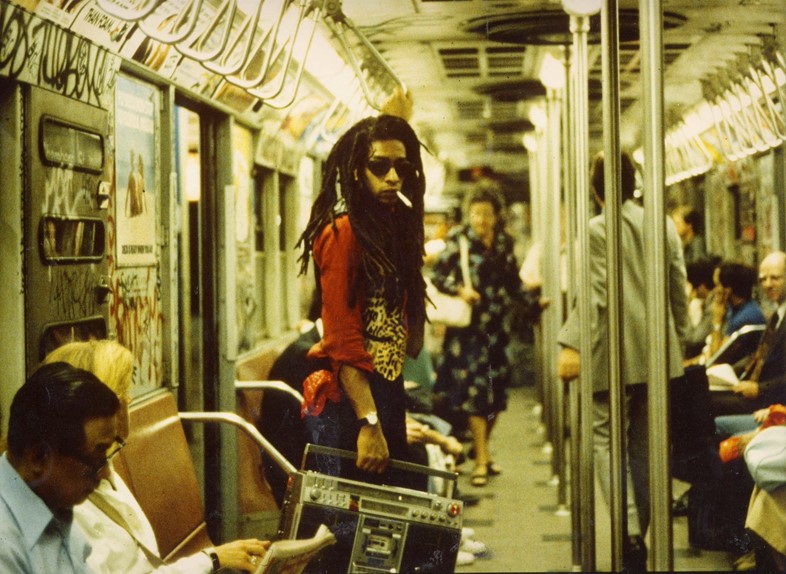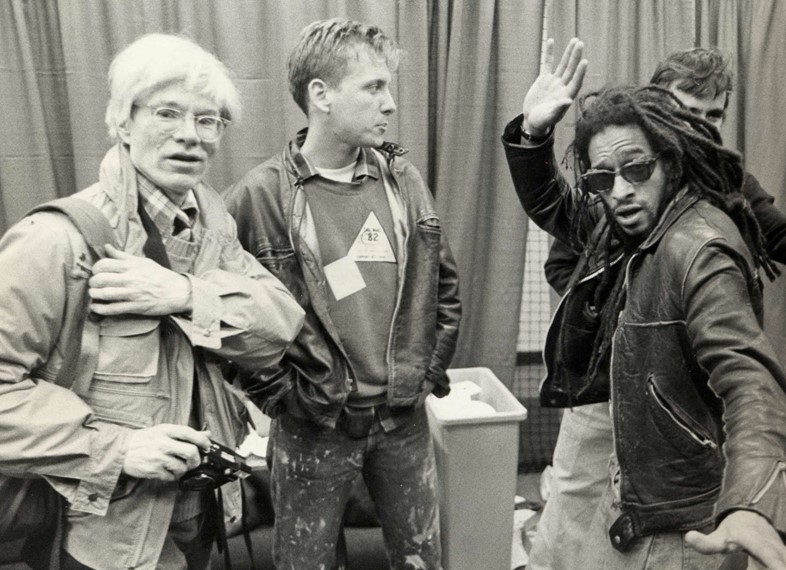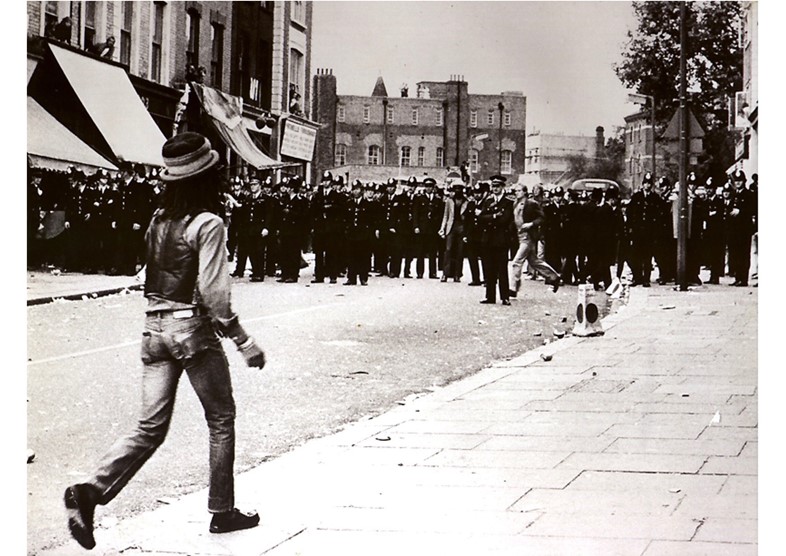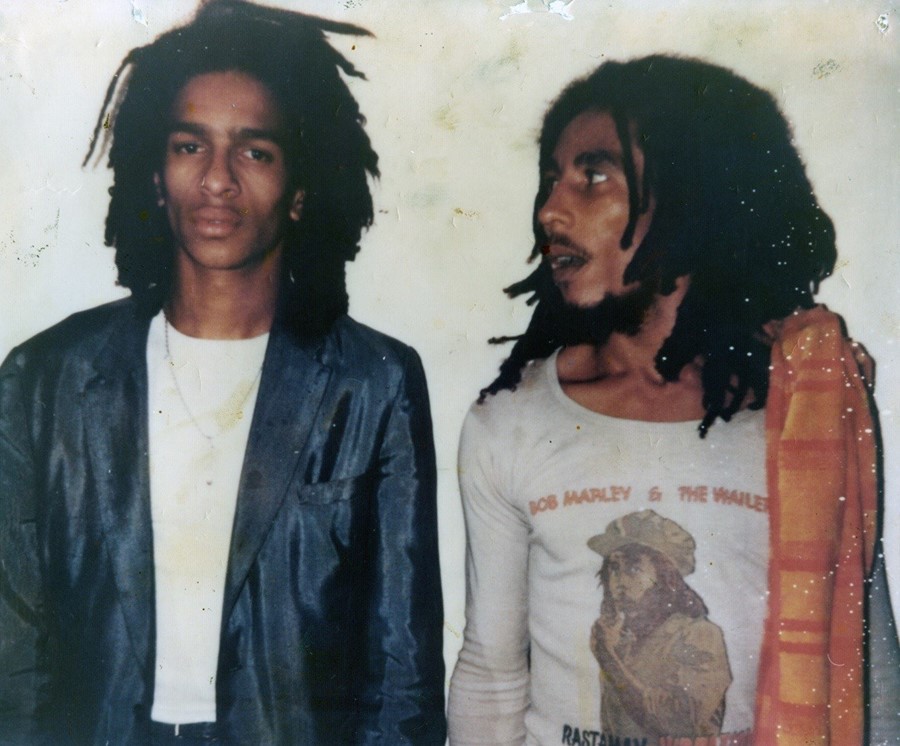As Rebel Dreads – a new documentary about Letts – is released, the DJ, manager and film director discusses his cultural awakening, punk and the huge influence of Jamaican music on British bands and culture
1968 was a pivotal year for 12-year-old Don Letts. “Before he made that speech, at school it was, ‘All right, Lettsy mate,’” he says, recalling Enoch Powell’s infamous ‘rivers of blood’ speech. “Afterwards it was ‘you wog’, ‘you black bastard’, ‘fuck off back home’. That speech polarised the country and the playground.”
But just months later James Brown released his landmark single Say It Loud – I’m Black and I’m Proud, which, along with the launch of Trojan Records, became key milestones in Letts’ cultural awakening. “The music I was listening to, along with the books I was reading around the civil rights movement, meant I was tooled up and ready to go,” he says. “I could stand toe-to-toe with those right-wing motherfuckers and say, ‘Bring it on.’ I no longer felt like a second-class citizen. It gave me the ammunition to move forward.”
This early exposure to politics and dub reggae – and later, the autonomous spirit of punk – would go on to shape much of Letts’ career as a film director, DJ and musician. All of which has now been captured in the feature-length documentary Rebel Dread, directed by William E Badgley. The film is a portrait of a galvanising figure in the history of Black British music, as told through his many fans, from Massive Attack’s Daddy G to pioneering UK dub producer Dennis Bovell and Chuck D. “Don was the spearhead of making videos in England for Black groups,” Bovell says in the film, while over the pond “he changed the way we thought about music”, says Ad-Rock of the Beastie Boys.

1975 was another key year for Letts, who quickly gained a reputation for running Acme Attractions, a hip clothes shop on Kings Road in Chelsea that pumped out chest-pounding dub all day long, attracting everyone from Patti Smith to Bob Marley. As a result, he soon got hired as the DJ at a new punk club, the Roxy. Given punk’s infancy in the UK, there weren’t a huge amount of records to play, so Letts filled the place with the same vibe as his clothes shop – heavy dub and thick weed smoke.
The Roxy, of course, played host to many of UK punk’s key players in the late 70s, including The Clash, Siouxsie and the Banshees and X-Ray Spex. But the role of Jamaican music was much more than just a soundtrack for white kids to smoke joints or bounce around to. “It’s the element that gave British punk its distinct identity,” says Letts. “The whole sonics of it, with an emphasis on basslines – it’s an integral part of punk rock as well as the fabric of modern music.”
Groups like The Clash, the subject of Letts’ Grammy-winning film Westway to the World, and John Lydon’s post-Sex Pistols outfit Public Image Ltd are obvious examples of bands who borrowed liberally from the genre (Letts would later form a band, Big Audio Dynamite, with The Clash’s Mick Jones.) But Letts credits early dub reggae as a unifying cultural force that extends way beyond musical reference. “Between 1969 and 1974 Trojan records were in the charts nearly every month,” he says. “It’s an unprecedented run of records that people have ended up singing in fucking football fields to this day. They are part of England’s cultural heritage.”
These years leading up to the punk explosion in London are some of the documentary’s most riveting. With vivid archive footage, including a very striking young Letts, capturing the bustling streets and communities of places like Brixton, despite the backdrop of deep social turbulence and racist policing.

It’s the same terrain that Steve McQueen explored in his recent BBC anthology series Small Axe and Uprising, a documentary on Black British protest and civil unrest that aired last year. Does Letts see a reframing of the narrative from that era of Black British culture? “I don’t think there’s enough being said of how even with all that shit going on we found a way to unite and move forward,” he says. “There’s a lot of emphasis on all the wrongs, but I’ve yet to see anything that addresses the rights that came out of that. That’s a film I’d like to see. Steve McQueen has made some excellent pieces of work but when I was watching [his new work], it felt pretty grim. It wasn’t like that 24/7. Somehow we found a way and out of that came the cultural creativity that makes the UK what it is. It’s testament to the power of culture to be able to bring people together in a time when politics was doing just the opposite.”
The huge influence of Jamaican music on British bands and culture would come full circle when Richard Branson and John Lydon flew to Jamaica to scout for acts to sign to a new Virgin records subsidiary label, Front Line, with Lydon inviting Letts. “It was the most mind-blowing trip of my life,” says Letts of the first trip to his parents’ homeland. “I’ll forever owe John for that. Even though I don’t recognise the person he is today.” Pioneers of the genre flooded to their hotel looking for a deal and many – from Big Youth to Sly Dunbar – would end up with one.

Was there any concern or conflict that this music that Letts had turned so many people on to, and was so crucial in shaping the sound of Britain in the 1970s, was being placed in the hands of white blokes acting as cultural gatekeepers? “At the time I was too overwhelmed with the experience to think about that dynamic,” he says. “What really struck me over there was how these people that I thought were legendary names globally were totally flat on their arse. Most of them were literally begging you for a drink and a meal. That was the eye-opener.”
Letts also felt that, at the time, it was just business as usual. “That whole thing of the white man being the conduit to passing it on? I mean, just look at rock’n’roll,” he says. “I guess that was a dynamic we’d been used to. I didn’t have the power to change it at that point. So like everybody else, you were just looking to hook up with anybody that can help you get your shit out there and earn a crust. The brothers weren’t in a position to question that dynamic because they had fuck all. What I took from that was that the real pioneers very rarely get to collect; it’s the people that come along after and water it down that make the money.”
Nearly 50 years on, those Jamaican sounds that Letts blasted out of basement clothes shops and grotty punk clubs continue to reverberate loudly. “It’s become part of the consciousness of British people,” Letts says. “Maybe not for all of them, but enough of them to make this place livable.”
Rebel Dread is in cinemas from March 4.
